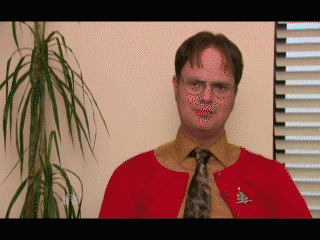I think the problem with point systems and decaying is that the number crunching doesn't always reflect this.
Neither do panel members voting. At least it's impossible to (reasonably) argue with a pre-announced method for determine the rankings.
What happens when an inactive player with decay comes back and can still beat everyone in the region and does the best out of state?
Using TrueSkill, such an inactive player would have a large uncertainty value while maintaining their skill score. This means something along the lines of "We know this guy was good, but we're not very sure how much his skill has changed since he went inactive". Because you have a tourney attendance requirement to make it onto the PR, the inactive player would not be listed, but their score would still be high.
Should he/she be low/gone from the PR even though he/she is clearly still the best? Or, the region as a whole got better than an inactive player coming back, but some people are still lower on the PR. Is that right?
Since their score remains the same but with a large uncertainty, coming back into the scene would lower their uncertainty reasonably quickly allowing them to either close in on what they deserve to be now. It quickly and accurately reflects changes in activity, that's actually one of the design goals of a system that has uncertainty.
With the perfect decay/point system this won't happen, but it also won't happen with the panel/residency requirement system already in place. It's much easier to accomplish my opinion's goal.
Well, I'm proposing that we have a reasonably perfect point/decay system. Updating and maintaining such a ranking would require far less effort than having the lengthy discussions needed by panels that are perfectly ranking players. It's much easier to have a better numerical system than to have unbiased people.
The points are nice because it gives the players a sense of what they need to do to make themselves happy. I think it's better to leave numbers for the most part out and be motivated as a player to do better and win more difficult games, rather than 'fictionally' gaining 5.28 PR points.
On the converse, when a player is ranked lower than they want to be on a numerical system, they can see why they are ranked that way and have direct feedback to their efforts. In fact, direct feedback is one of the strongest ways of getting people to do things well. Solidly designed reward schedules keep people grinding in MMOs for way more time than makes sense. Such Skinner-Box techniques are used throughout the gaming industry and are an amazing source of motivation. Humans are also amazing feedback control systems. Did you know that you can actually raise the temperature on a thermometer by holding it significantly better if you can see the reading of the thermometer? Entirely subconscious.
On the other hand, if a player is ranked lower than they want to be on a panel system, they have virtually no feedback. They can't tell how far away they are and they only have people's words and opinions to work on. In fact, it's faaaaar more likely that they'll simply think the panel was bias against them. Does this motivate the player to do better? No. It does the opposite. If they think they've been winning tough matches enough to be ranked higher and the panel is just disregarding their effort, then they're far more inclined to actually put
less effort into performing better because it doesn't matter at all: those damn panelists aren't going to care anyways.
=======
I've been on several power ranking committees and have contributed to numerical skill systems in the past. My preference is clear.

 all day long.
all day long.
